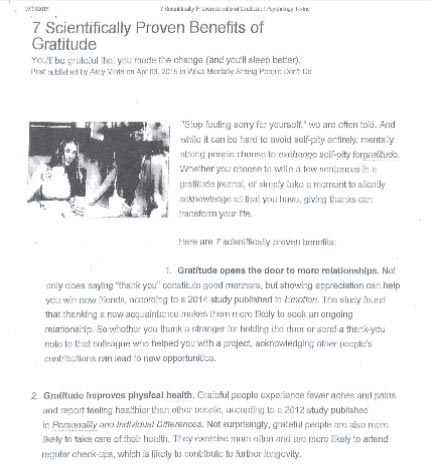 Not being “heard” by a partner is frustrating. No one wants to feel insignificant, invisible, overlooked or taken for granted. The common response when one feels they are not being listened to, is either to fight harder to get their partner’s attention, or retreat or withdraw often leading to depression.
Often a client says they feel they can’t express themselves in the relationship because when they try to talk, their partner becomes defensive meaning they only see and defend their side and their experience, often claiming they are “right”, without even hearing the initial partners complaint.
Therefore, I am sharing with you a fail-proof system of communicating, that eliminates both getting defensive, and eliminates triggering someone else from getting defensive. It is fail-proof when done correctly and I see tremendous changes in couples when we do this in therapy.
Here is information for you to understand and use the process. I would love to hear how it works for you. May you have significant and powerful results. Enjoy!
Not being “heard” by a partner is frustrating. No one wants to feel insignificant, invisible, overlooked or taken for granted. The common response when one feels they are not being listened to, is either to fight harder to get their partner’s attention, or retreat or withdraw often leading to depression.
Often a client says they feel they can’t express themselves in the relationship because when they try to talk, their partner becomes defensive meaning they only see and defend their side and their experience, often claiming they are “right”, without even hearing the initial partners complaint.
Therefore, I am sharing with you a fail-proof system of communicating, that eliminates both getting defensive, and eliminates triggering someone else from getting defensive. It is fail-proof when done correctly and I see tremendous changes in couples when we do this in therapy.
Here is information for you to understand and use the process. I would love to hear how it works for you. May you have significant and powerful results. Enjoy!
Effective communication is essential to a good relationship. Good communication skills may not solve problems or resolve issues, but no problems can be solved, or issues resolved without them. We may communicate well or poorly, but we cannot NOT communicate. One of the most effective forms of communication between persons in a committed love relationship is the INTENTIONAL DIALOGUE. It consists of three processes called mirroring, validation and empathy. Mirroring is the process of accurately reflecting back, the content of a message from one partner. The most common form of mirroring is paraphrasing. A “paraphrase” is a statement in your own words of what the message your partner sent means to you. It indicates that you are willing to transcend your own thoughts and feelings for the moment and attempt to understand your partner from their point of view. Any response made prior to mirroring is often an “interpretation” and may contain a misunderstanding. Mirroring allows your partner to send their message again and permits you to paraphrase until you do understand. Validation is a communication to the sending partner that the information being received and mirrored makes sense. It indicates that you can see the information from your partner’s point of view and can accept that it has validity- It is true for the partner. Validation is a temporary suspension or transcendence of your point of view that allows your partner’s experience to have its own reality. Typical validating phrases are: “I can see that…l”, “It makes sense to me that you would thing that”, “I can understand that …”, Such phrases convey to your partner that their subjective experience is not crazy, that it has it’s own logic, and that it is a valid way of looking at things. To validate your partner’s message does not mean that you agree with his/ her point of view or that it reflects your subjective experience. It merely recognizes the fact that in every situation, no “objective” view is possible. In many communication between two persons, there are always two points of view, and every report of any experience is an “interpretation” which is the “truth” for each person. The process of mirroring and validation affirms the other person and increases trust and closeness. Empathy is the process of reflecting or imagining the feeling the sending partner is experiencing about the event or the situation being reported. This deep level of communication attempts to recognize, reach into and on some level, experience the emotions of the sending partner. Empathy allows both partners to transcend, perhaps for a moment, their separateness and to experience a genuine “meeting.” Such an experience has remarkable healing power. Typical phrases for empathic communication include: “and I can imagine that you must feel…”, and when you experience that, I hear….and that makes sense to me.” A complete dialogue transaction may then sound as follows: “So, I understand you to be saying that if I don’t look at you when you are talking to me, you think that I am interested in what you are saying. I can understand that, it makes sense to me, and I can imagine that you would feel rejected and angry. That must be a terrible feeling.” The reciprocal exchange of this process is the INTENTIONAL DIALOGUE.

 This counselor sees these three things as basically universal truths, and most people who have been married five years or more are unlikely to disagree with any of them. We don’t really know who we are marrying—there is always something more to find out. No one person can meet all our needs. And every marriage is difficult.
These “3 Truths” are healthy reminders for every married couple. So often we want to particularize the challenge of our marriage, making it our spouse’s fault instead of admitting that no one fully and completely knows the person they are marrying; no marriage supplies all our emotional needs; and no marriage is always “easy.”
The trick is to keep a universal truth from becoming a specific attack. For example: “You’re not who I thought you were” can lead to, “Therefore you must have lied to me or hid from me or misled me intentionally.” You’ve taken a universal truth about marriage and used it as an individual assault.
Let me add a caveat here, however, for one particular situation: Some people are master manipulators and they really did commit fraud prior to the marriage, about who they were, what they value, and how they live. And some people can actively and intentionally cover up major issues psychological, drug dependence, etc.) from their future spouse that also amounts to fraud.
For most people, though, it’s not about fraud as much it is about discovery, having our eyes opened to distasteful things, short of abuse, that are unpleasant and maybe even shocking to discover. Even if your spouse managed to be one hundred percent honest while dating, you’ll still find out a few unfortunate truths about him or her as the marriage progresses.
The second universal truth, “You’re not meeting my needs!” implies that someone else could meet all your needs. It can turn into a poisonous disappointment and contempt, all because you accepted the premise of a lie—that your spouse is supposed to meet all your needs. Imagine a coach berating Lebron James because during one game he missed half his shots or only pulled down three rebounds. Try to find any player who doesn’t usually miss half his shots!
Finally, “Marriage is difficult” can turn into “you’re difficult so something must be wrong with you.” No one person can meet all our needs. According to the IMAGO model, if you want more love, be more loving. If you want more kindness and consideration, be more considerate and kind. If you want more sex, be more sexual. Be more of what you want. Don’t expect more than what you give. Also, ask yourself, what have I done to keep the spark in my marriage/ relationship lately?
So let’s step back and look at these three thoughts.
This counselor sees these three things as basically universal truths, and most people who have been married five years or more are unlikely to disagree with any of them. We don’t really know who we are marrying—there is always something more to find out. No one person can meet all our needs. And every marriage is difficult.
These “3 Truths” are healthy reminders for every married couple. So often we want to particularize the challenge of our marriage, making it our spouse’s fault instead of admitting that no one fully and completely knows the person they are marrying; no marriage supplies all our emotional needs; and no marriage is always “easy.”
The trick is to keep a universal truth from becoming a specific attack. For example: “You’re not who I thought you were” can lead to, “Therefore you must have lied to me or hid from me or misled me intentionally.” You’ve taken a universal truth about marriage and used it as an individual assault.
Let me add a caveat here, however, for one particular situation: Some people are master manipulators and they really did commit fraud prior to the marriage, about who they were, what they value, and how they live. And some people can actively and intentionally cover up major issues psychological, drug dependence, etc.) from their future spouse that also amounts to fraud.
For most people, though, it’s not about fraud as much it is about discovery, having our eyes opened to distasteful things, short of abuse, that are unpleasant and maybe even shocking to discover. Even if your spouse managed to be one hundred percent honest while dating, you’ll still find out a few unfortunate truths about him or her as the marriage progresses.
The second universal truth, “You’re not meeting my needs!” implies that someone else could meet all your needs. It can turn into a poisonous disappointment and contempt, all because you accepted the premise of a lie—that your spouse is supposed to meet all your needs. Imagine a coach berating Lebron James because during one game he missed half his shots or only pulled down three rebounds. Try to find any player who doesn’t usually miss half his shots!
Finally, “Marriage is difficult” can turn into “you’re difficult so something must be wrong with you.” No one person can meet all our needs. According to the IMAGO model, if you want more love, be more loving. If you want more kindness and consideration, be more considerate and kind. If you want more sex, be more sexual. Be more of what you want. Don’t expect more than what you give. Also, ask yourself, what have I done to keep the spark in my marriage/ relationship lately?
So let’s step back and look at these three thoughts.
 was forced to make his living as a writer (he became the most popular writer of his day, he thought having a wife would be a very good thing, and he soon entered into a very happy and fulfilling marriage to a young woman named Margaret.
In making his choice, Richard was already a wise man who, as a pastor, had seen the folly so many others had fallen into to. Thus, he was determined to “avoid the foolish passion which the world calls love.”
He didn’t minimize love, but sought a higher love: “I know you must have love for those [you marry],” he wrote, but he was insistent that it be a “rational” love that discerns “worth and fitness” in the loved, not “blind…lust or fancy.”[i]
Richard had seen how “blind lust and fancy” (sex appeal and romantic infatuation) could make seemingly wise people curiously blind to a person’s poor worth and low character so he determined early on that he would not be guided by those things.
Instead, he was determined to find a “worthy” spouse, and a “fit” spouse.
If you find yourself crazy with infatuation, and your highest desperate desire is to hear that they feel the same way about you, force yourself to ask two rational questions:
was forced to make his living as a writer (he became the most popular writer of his day, he thought having a wife would be a very good thing, and he soon entered into a very happy and fulfilling marriage to a young woman named Margaret.
In making his choice, Richard was already a wise man who, as a pastor, had seen the folly so many others had fallen into to. Thus, he was determined to “avoid the foolish passion which the world calls love.”
He didn’t minimize love, but sought a higher love: “I know you must have love for those [you marry],” he wrote, but he was insistent that it be a “rational” love that discerns “worth and fitness” in the loved, not “blind…lust or fancy.”[i]
Richard had seen how “blind lust and fancy” (sex appeal and romantic infatuation) could make seemingly wise people curiously blind to a person’s poor worth and low character so he determined early on that he would not be guided by those things.
Instead, he was determined to find a “worthy” spouse, and a “fit” spouse.
If you find yourself crazy with infatuation, and your highest desperate desire is to hear that they feel the same way about you, force yourself to ask two rational questions:

 It’s a “communication issue” or “a failure to set boundaries.” Maybe you’ve thought your partner has a bad temper or a problem with anger management. Perhaps you think that you are doing something wrong or that there is something wrong with you. In our society, we aren’t very good at talking about abuse, so women are often left wondering.
A common myth is that abuse means only physical abuse. But, actually, there are many different types of abuse, including emotional, psychological, financial, and sexual abuse. These can be just as damaging as physical abuse. For example, abusive partners can attempt to isolate you or cut you off from sources of support, use sarcasm or threats to put you down, change moods to intimidate you, express jealousy, and become emotionally distant.
They can also refuse to allow you to practice your faith, devalue your knowledge or education, control the finances, or threaten to have an affair if you don’t do what they ask. These and many other examples are not generally thought of as abuse. You may know there is something “wrong” but may not label it as abuse. Here’s a list of seven things that abusive partners often do in their relationships. Ask yourself if your partner does any of these things:
It’s a “communication issue” or “a failure to set boundaries.” Maybe you’ve thought your partner has a bad temper or a problem with anger management. Perhaps you think that you are doing something wrong or that there is something wrong with you. In our society, we aren’t very good at talking about abuse, so women are often left wondering.
A common myth is that abuse means only physical abuse. But, actually, there are many different types of abuse, including emotional, psychological, financial, and sexual abuse. These can be just as damaging as physical abuse. For example, abusive partners can attempt to isolate you or cut you off from sources of support, use sarcasm or threats to put you down, change moods to intimidate you, express jealousy, and become emotionally distant.
They can also refuse to allow you to practice your faith, devalue your knowledge or education, control the finances, or threaten to have an affair if you don’t do what they ask. These and many other examples are not generally thought of as abuse. You may know there is something “wrong” but may not label it as abuse. Here’s a list of seven things that abusive partners often do in their relationships. Ask yourself if your partner does any of these things:
 They prevent us from being in harmony with the world. Resentments are hardened chunks of anger. They loosen up and dissolve with forgiveness and letting go.
Letting go of resentments does not mean we allow the other person to do anything to us that he or she wants. It means we accept what happened in the past, and we set boundaries for the future. We can let go of resentments and still have boundaries.
Try to see the good in the person, or the good that ultimately evolved from whatever incident you feel resentful about. Try to see your part. Get clarity on what your boundaries are and be willing to speak up and state your boundaries with others. (teach people how to treat you). Then put the incident to rest.
They prevent us from being in harmony with the world. Resentments are hardened chunks of anger. They loosen up and dissolve with forgiveness and letting go.
Letting go of resentments does not mean we allow the other person to do anything to us that he or she wants. It means we accept what happened in the past, and we set boundaries for the future. We can let go of resentments and still have boundaries.
Try to see the good in the person, or the good that ultimately evolved from whatever incident you feel resentful about. Try to see your part. Get clarity on what your boundaries are and be willing to speak up and state your boundaries with others. (teach people how to treat you). Then put the incident to rest. reached out to me for sex and I turned my back, pushed you away, or made lame excuses to avoid any romantic or sexual time together? How about if I went day after day ignoring your sexual needs?
It’s hard for me to feel like helping you or supporting you when you’re so insensitive. Problem is, it takes two of us to be sexual but only one person (you!) to say no. You have the power to stop our sex life and you have used that power at the risk of our happiness.
You must not feel what I feel when we go without sex. I can’t help but believe if you knew how physically, emotionally, and psychologically uncomfortable it is for me, that you would feel guilty about your resistance. Or maybe you just don’t care; maybe you don’t care about sex and don’t care about me. Whatever the reason, I’m not happy about it and you should understand why I’m upset.”
reached out to me for sex and I turned my back, pushed you away, or made lame excuses to avoid any romantic or sexual time together? How about if I went day after day ignoring your sexual needs?
It’s hard for me to feel like helping you or supporting you when you’re so insensitive. Problem is, it takes two of us to be sexual but only one person (you!) to say no. You have the power to stop our sex life and you have used that power at the risk of our happiness.
You must not feel what I feel when we go without sex. I can’t help but believe if you knew how physically, emotionally, and psychologically uncomfortable it is for me, that you would feel guilty about your resistance. Or maybe you just don’t care; maybe you don’t care about sex and don’t care about me. Whatever the reason, I’m not happy about it and you should understand why I’m upset.”
 them anymore.
A significant number of couples simply don’t make time for sex. The lead busy lives with little relaxation or quiet moments together.
Some partners simply aren’t interested in sex and feel justified in ignoring their partner’s needs- although this is far rarer than you might believe. Given the right situation almost everyone enjoys sex.
If the partner who initiates sex more often exhibits offensive behavior, such as acting in an angry or defensive manner, this may serve as a turn-off and justification for the other partner to withhold sexual contact. Without effective communication skills a cold war may ensue.
Easily, the most common reason partners withhold sex is lack of information related to healthy, fun, sexual practices. They don’t know what turns them on and therefore cannot provide their partners with constructive information that would lead to mutual satisfaction. They may never have come close to experiencing their own sexual potential.
them anymore.
A significant number of couples simply don’t make time for sex. The lead busy lives with little relaxation or quiet moments together.
Some partners simply aren’t interested in sex and feel justified in ignoring their partner’s needs- although this is far rarer than you might believe. Given the right situation almost everyone enjoys sex.
If the partner who initiates sex more often exhibits offensive behavior, such as acting in an angry or defensive manner, this may serve as a turn-off and justification for the other partner to withhold sexual contact. Without effective communication skills a cold war may ensue.
Easily, the most common reason partners withhold sex is lack of information related to healthy, fun, sexual practices. They don’t know what turns them on and therefore cannot provide their partners with constructive information that would lead to mutual satisfaction. They may never have come close to experiencing their own sexual potential.
 commitment to be available as a sexual/ sensual/ intimate partner whenever either of you has the desire.
There are many, many ways to be sexual. From the quickie to the weekend sex fest, couples run the gamut when it comes to sensual pleasure. Get in the habit of expanding your sexual repertoire in terms of time, attention, and technique.
If the issues between the two of you are more complicated than just getting off track, then you might need to address the unresolved issues that are contaminating your sex life:
commitment to be available as a sexual/ sensual/ intimate partner whenever either of you has the desire.
There are many, many ways to be sexual. From the quickie to the weekend sex fest, couples run the gamut when it comes to sensual pleasure. Get in the habit of expanding your sexual repertoire in terms of time, attention, and technique.
If the issues between the two of you are more complicated than just getting off track, then you might need to address the unresolved issues that are contaminating your sex life:
 stranger mean more to you than your own family? You have ruined all our lives just to follow your feelings and please yourself.
So is this about sex? Are you not attracted to me anymore? Did you ever find me attractive? Am I such a miserable failure? It feels like my heart is being torn out of my body. Why are you doing this to me?
I am angry but I am also deeply sad. I’m grieving the loss of a dream. I guess it was a dream because I thought we had a strong loving relationship while all along you were giving your love and attention secretly to someone else.
How could you look at me and act like nothing was happening while knowing you were lying to my face? Some part of me feels like a big fool- for loving you, believing you, and trusting you. Well, you’ve broken that trust, and I don’t know if I can ever get that back again.”
stranger mean more to you than your own family? You have ruined all our lives just to follow your feelings and please yourself.
So is this about sex? Are you not attracted to me anymore? Did you ever find me attractive? Am I such a miserable failure? It feels like my heart is being torn out of my body. Why are you doing this to me?
I am angry but I am also deeply sad. I’m grieving the loss of a dream. I guess it was a dream because I thought we had a strong loving relationship while all along you were giving your love and attention secretly to someone else.
How could you look at me and act like nothing was happening while knowing you were lying to my face? Some part of me feels like a big fool- for loving you, believing you, and trusting you. Well, you’ve broken that trust, and I don’t know if I can ever get that back again.”
 Most people, however, don’t decide- they slide into an affair. Conscious thought doesn’t enter into the picture. An innocent acquaintance gradually becomes more intimate until it’s the primary source of pleasure. An innocent acquaintance gradually becomes more intimate until it’s the primary source of pleasure. The affair begins with two people sharing information or an activity; they bond around personal contact and mutual experiences. With little or no conscious thought, they cross the line into infatuation. Once the affair relationship start to provide a sensual or sexual high, then it’s “game over.” You are now under the influence of infatuation, one of the strongest forces found in nature. Infatuation sets up an insatiable craving for more contact that’s practically impossible to resist.
It’s easy to be judgmental about affairs. But being attracted to another person is normal. For some, monogamy is compatible and comfortable. For others, monogamy takes a more conscious effort.
An important clarification regarding affairs- contrary to popular belief- is that affairs can and do happen in good relationships. You can be in a happily committed relationship and still meet someone at work with whom you have chemistry. If you follow the chemistry, an affair will follow.
Most people, however, don’t decide- they slide into an affair. Conscious thought doesn’t enter into the picture. An innocent acquaintance gradually becomes more intimate until it’s the primary source of pleasure. An innocent acquaintance gradually becomes more intimate until it’s the primary source of pleasure. The affair begins with two people sharing information or an activity; they bond around personal contact and mutual experiences. With little or no conscious thought, they cross the line into infatuation. Once the affair relationship start to provide a sensual or sexual high, then it’s “game over.” You are now under the influence of infatuation, one of the strongest forces found in nature. Infatuation sets up an insatiable craving for more contact that’s practically impossible to resist.
It’s easy to be judgmental about affairs. But being attracted to another person is normal. For some, monogamy is compatible and comfortable. For others, monogamy takes a more conscious effort.
An important clarification regarding affairs- contrary to popular belief- is that affairs can and do happen in good relationships. You can be in a happily committed relationship and still meet someone at work with whom you have chemistry. If you follow the chemistry, an affair will follow.
 Affairs change your image of your partner. Whether you had the affair or you’re reeling from your partner’s affair, the experience will show you another side of one another’s personality. When we are in the throes of fear or shame, none of us function at our best.
Affairs are traumatic. Trauma is any real or perceived threat to survival. When you are in a committed love relationship your partner becomes an attachment figure. This means, your partner’s attention determines your feeling of security and survival. So if your partner chooses someone else over you, it feels like you are going to die. Affairs evoke fear of abandonment. Even though affairs most often are the result of your partner’s unilateral, personal decision, it’s hard not to take it as a personal affront. When you’re reeling in the hurt it’s hard to reach the love that once connected you.
The unfaithful partner can feel shame because:
Affairs change your image of your partner. Whether you had the affair or you’re reeling from your partner’s affair, the experience will show you another side of one another’s personality. When we are in the throes of fear or shame, none of us function at our best.
Affairs are traumatic. Trauma is any real or perceived threat to survival. When you are in a committed love relationship your partner becomes an attachment figure. This means, your partner’s attention determines your feeling of security and survival. So if your partner chooses someone else over you, it feels like you are going to die. Affairs evoke fear of abandonment. Even though affairs most often are the result of your partner’s unilateral, personal decision, it’s hard not to take it as a personal affront. When you’re reeling in the hurt it’s hard to reach the love that once connected you.
The unfaithful partner can feel shame because:

 These can also be addressed in psychotherapy with a professional who is familiar with guiding you through to build trust, safety and a positive connection.
These can also be addressed in psychotherapy with a professional who is familiar with guiding you through to build trust, safety and a positive connection.